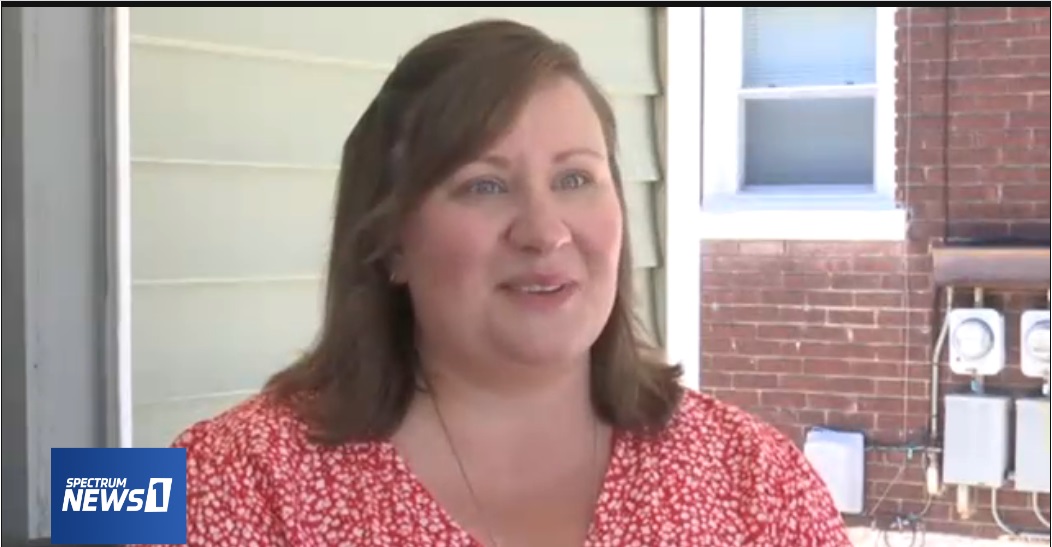How Cancer Patients and Survivors Are Experiencing the Pandemic
LOUISVILLE, Ky. — The pandemic is impacting every aspect of our lives, and for Kentucky cancer patients and survivors, that impact is felt doubly.
A survey conducted by the American Cancer Society Cancer Action Network (ACS CAN) found an overwhelming number of cancer patients and survivors say their health care has been impacted.
Diagnosed with fibrosarcoma in 2015, Louisville resident Lori Mangum knows the impact of cancer first hand. After her diagnosis, she underwent ten surgeries in less than two years to remove the cancer, and it worked out— She’s been cancer-free for three years.
“My surgeons were total cowboys and they did what they had to do and they took some risks and it really paid off,” she said. “I’m really glad to be able to walk around, and most people would not know where those scars are unless I show them.”
A cancer survivor, she now works at Gilda’s Club to help others who are going through the same thing she went through just a few years ago. Mangum says the pandemic is putting an extra burden on cancer patients and survivors like herself.
“I think about my own immune system, and I think about my family and friends, but I think about the children and their families that I work with every single day that are terrified to go outside, and so for me, it’s not just about my own health and wellness, but it’s about the fact that every choice I make for myself could potentially impact those families,” she said.
Mangum added, “There is just such an unseen chain of possible impact and so everything about COVID makes you take steps back and say, ‘what about every choice I make today can be negatively impacting not only my own life but the people that are very vulnerable around me?’”
The ACS CAN survey found 87 percent of respondents say the pandemic has affected their health care in some way.
“Some of that is psychological, you know the fear of getting in your car and going to the hospital where there are people being treated for COVID, but you need your infusion, you need your radiation, not everybody has the blessing of going to a dedicated cancer center,” Mangum said.
Additionally, 79 percent of people receiving active treatments have experienced delays in their health care.
“Just the fact that the waiting list to get in for the treatment that you need is growing longer and longer as medical facilities are understaffed and people haven’t been able to be present for what they normally would be,” Mangum said.
One in four respondents said it’s harder to ask questions about their health care and one in five are in fear their cancer could grow or return as a result of the delays.
“It can be anything from being able to safeguard yourself to get out of the house to go get the treatment, to just taking care of everyone in your family when you as the parent or the guardian or another one of your children is the patient and everything just has a whole other layer of complex process you have to go through just on a daily basis.”
The survey also found 46 percent of respondents say COVID is causing a financial strain to pay for care, while nearly a quarter are concerned they could lose health insurance. As restrictions continue to ease, 67 percent of respondents say they are concerned they will not be able to stay safe and socially distance.
Mangum hopes the results of the survey will remind people to follow the recommended CDC guidelines.
“Don’t take for granted that everyone feels as safe or maybe as strong as you do,” she said. “Make every decision like it could impact them and could be the difference between them making it through the pandemic or not.”
By: Spectrum New 1 BY MICHON LINDSTROM KENTUCKY
Support families fighting financial toxicity of cancer – here.
